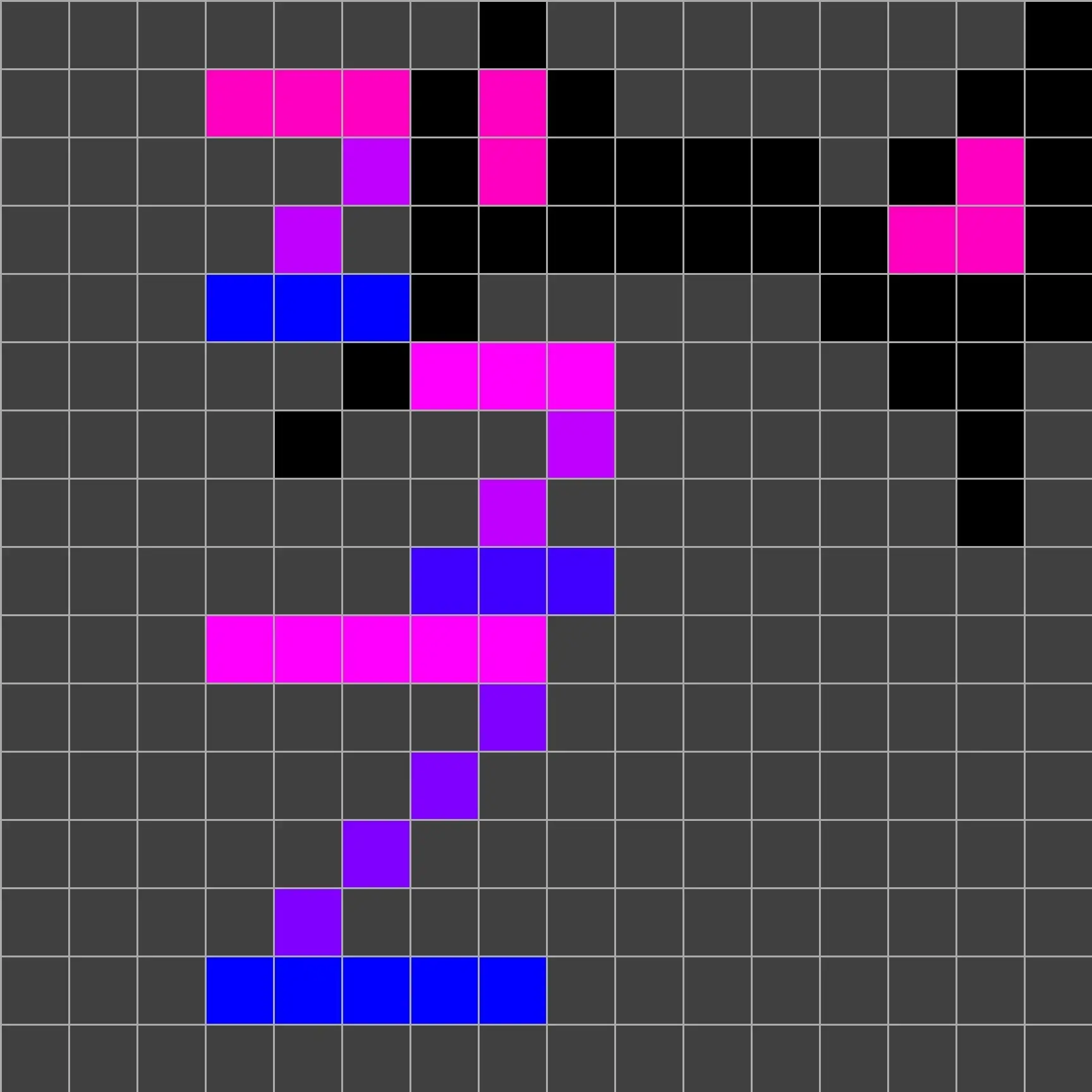Less DRM, smaller filesizes, no stupid anticheat, and no always online bs. Anyone agree with me?
Are you cherry picking the good games out of older libraries? I find people do that a lot when remembering. It’s a survivorship bias thing. The good ones get remembered more and the bad one forgotten, so they seem like the population is better.
People that have this opinion often only play AAA games. There are a lot of indie games that channel old-school game energy and improve upon them. Shovel Knight for example is a lot better than old platformers wish they were. A Hat in Time is a ton of fun compared to the vast majority of PS2/Gamecube 3D platformers. Hollow Knight is better than any Metroid game (I know a lot of people would disagree, though).
Cassette Beasts kicks the ever loving shit out of Pokemon across the board, modern or retro.
Retro games weren’t better than modern games as a “full-stop” statement. They tended to be bug-ridden messes, but there was still a heart and soul behind them that tends to be missing in the AAA industry. Continuing on the Pokemon example Red/Blue were an absolute mess. I mean, moves and items that were supposed to massively increase critical hit rate massively decreased them instead. Stat calculations were all over the place. Hell, the ghost-psychic interaction just straight didn’t function as intended. It was a mess, and yet for some reason, it’s touted as “better” than the modern Pokemon games.
Plus, not all big studio games are soulless cash grabs of releases, either. Hi-Fi Rush is my favorite game of 2023 by a huge margin, and was a Bethesda published game. Sure, the dev studio was “smaller” compared to Ubisoft or Activison, but I wouldn’t call the game indie - it was AAA in polish and scale. I’m currently really enjoying Unicorn Overlord, getting major Ogre Battle 64 vibes from it, and playing a lot of Monster Hunter Rise thanks to a Steam sale. These games slap, and have all the depth and passion of games of old without alI of the horrible jank we dealt with in the pre-internet “no such thing as a post-release patch” world.
It’s easy to see the yearly Call of Duty, Pokemon, generic EA sports, and obligatory Ubisoft open world games release and think “man, AAA gaming sucks”, but they’re honestly a very tiny portion of the conversation.
EDIT: I take everything back, Bethesda just closed the studio that made Hi-Fi Rush. AAA gaming is a cancer that needs to be surgically extracted.
Cassette Beasts was a real treat. I’ll be finding it very difficult to go back to other monster taming games after playing that.
I loved A Hat in Time. I grew up in that golden age of platformers and Hat definitely stands up in quality to those.
I play indies too :3 (well try to, switch games don’t appeal much to me)
I wonder if you find older indie games
Abandon AAA, buy more indie or AA games and you’ll find what you want
Actually haven’t bought any new games that recently, can you give any recommendations?
I can give so many but you’ll have to narrow down your preferences a bit ^^
I’ve recently been playing Remnant 2, Songs of Syx, Age of Darkness, dotAGE, Helldivers, Valheim, Against the Storm… all really impressive and amazing games made by (relatively) small studios or AA developers with a passion for games. If you’re completely new to the indie scene you probably can’t go wrong with Hades, Hollow Knight, Stardew Valley, Terraria
Ooh :3
I’ve played Terraria :3
You should try hollow knight, its a great metroidvania, and without saying too much the entire game is amazing, just the first zone is a bit boring
Yea :3 I’ll get the switch ROM.
BTW, not exactly a metroidvania but skul: the hero slayer is a nice platofrmer too
Why the switch ROM?
Not doing PC gaming anymore, and also I have a device that can emulate some switch
Out of curiosity, what device is that?
Retroid pocket 4 pro
Which device is that?
Rp4 pro
Try looking for a Steam curator with tastes similar to yours. I like SkillUp’s curator page, maybe try that as a jumping off point.
Could try that I guess, but I don’t really do PC gamjng anymore.
Well, same principle can be applied to other platforms. Find a streamer who plays a game you like you like and see what else they like.
Balatro, game of the year for me so far
Hero’s Hour is a pixel art game that’s about building an army. Really solid indie game! Also a fan of Revita, it’s a roguelike but done very well and is mostly unique.
Just be careful not to idealize the past as some golden age of gaming. During the SNES era, worthwhile titles were few and far between on top of spotty regional availability on account of profitability (supposedly). The bar to entry for gamedevs was huge: the dev tools were obtuse and the distribution methods were shit and centralized (toy stores, computer stores, magazines). The offer was also ridiculously sanitized, at least on consoles.
It’s great that we can still enjoy the good games of the past, but I absolutely love what indies come up with nowadays. There are so many and they’re so creative! ❤️ Some talented big studio devs even manage to release something nice once in a while despite the organizational structure they work in. I never want to go back to gaming in the 90’s. Furthermore, I’m of the opinion that there are many past titles being hailed as classics solely based on some unconscious nostalgia for youth (I’m looking at you GOG).
Its just like with idealizing music eras. People remember the stand outs and forget the bad and mediocre stuff so it seems like everything was better in whatever time.
while all of those qualities are great, they alone don’t make game great.
Yea, but the SNES in particular has an amazing library, I love super sf2
I haven’t played many SNES games, but the ones I have have been pretty good. Fairly sure there’s quite a bit of stinkers in there too.
But they are a requirement.
It’s not a controversial take, but survivorship bias is certainly strong with anything like this. People like classic rock because the bad songs from that era have faded into obscurity. The same goes for your favorite retro games; for every Ocarina of Time there was a Superman 64. For every Zelda there were 3 shitty LJN games.
The type of trash is just different. Instead of low-effort cash grab games, now we get high-effort overworked devs making a game that asks you to pay for it over and over again.
I dunno. I pulled Septera Core out of a bargain bin shoved together with some forgettable mech game for $10, and it was pretty great.
I don’t think effort is what makes the difference. Games now are designed increasingly in ways that are less ‘risky’ in terms of corporate measures of user satisfaction than they used to be. It’s the kind of measure of satisfaction that sees a quest marker constantly showing your destination as clearly preferable to having to actually look at the world and find your way around.
I’ve run into this with friends of mine who are into modding before. When they see one mechanic that negates another mechanic, or that degrades the output quality of another mechanic, they see it as wasted code. To me, that’s the essence of the tension and release in a game. You create a state the player wants to get to, then you put shit in their way and provide them with various ways of solving your obstacles. That’s basically narrative driven gaming in a nutshell, an interaction between barriers and ways of negating those barriers.
But like, I think that may be part of what’s missing sometimes in pushing these more like real-world convenience-oriented features akin to a GPS app. If you’re making a GPS app, you want it to work perfectly, but in a game it’s kind of more fun if it’s got a little bit of jank in it. Not the actual code, obviously, but the player’s interaction with the mechanic in the game world. A straightforward trip from point A to point B isn’t much of a story.
Honestly, I think it’s just more of the kind of watering down that’s inevitable as you get too much money wrapped up in a project. Corporate infrastructures and IPOs aren’t conducive to art. Or quality in anything else, for that matter. It doesn’t just affect what decisions are made in a game’s development, either. It affects how people are educated, who gets hired, how labor is divided.
There’s definitely something to be said for the effects of nostalgia and survivorship bias on the appearance of retro gaming in a modern context, but there also have been major changes that aren’t just about the decisions of individual companies.
Honestly, my argument that new and old games are both good would be to point straight at the Ratchet & Clank series.
In my opinion, it’s only gotten better with time, and the latest entry in the Series from 2021 is genuinely one of the greatest games I’ve ever played. It’s modern, cutting-edge, requiring a PCIe Gen4 SSD and a DualSense controller for the best experience. It’s just fantastic. New games, even AAA games, can be great so long as the project is being led by people who know how to make good games.
You even see this with games that were insanely cash grabby from ten or so years ago. Borderlands 2 made you pay for every level cap increase and tiny piece of updated content as it rolled out. The handsome collection fixed that, but it’s still true that it really tried to toll you at every corner. Game is still highly regarded though.
Play what you enjoy. The old games can look better because you skip through to the best ones over the last 50+ years. Many were buggy, had terrible controls or were just boring. You’re probably not wasting your time on those.
There certainly was a “golden age of gaming,” where the cost for a studio to exist and make a game was pretty low and they were more willing to experiment. The thing people forget is that there was so, so, so much trash and shovelware made during that era as well. We remember the incredible game that innovated and drove the medium forward, and we forget the movie tie-ins and genre knockoffs.
These days, AAA has forgotten how to innovate, and nearly all of it is being driven by indie titles. This is because, once again, the cost to develop is now so low that literally anyone can do it. The amount of trash and shovelware we’re getting is almost ludicrous though, so it’s a lot harder to find the great titles that are overlooked, but extremely high quality has a remarkable way of cutting through the noise.
Depends on taste. I love mechanical depth and systems on systems and depending on how retro you’re talking most games older than, say early 2000s ish just don’t often have that
Deep games are fun :3
My olnybissue with retro games is the lack if good open worlds
Retro games (console & computer), indie games and open source games for the win, absolutely.
This :3
I mean, let’s not forget that the early consoles had their own pitfalls, a period of gaming that spawned tropes like ‘Nintendo Hard’ and ‘Guide Dang It’ in order to, among other things, pad out the length of what we would consider an otherwise barebones game, and to sell time on their hints and tips hotline. I do feel like there was less bullshit in the past, but it definitely still existed.
I think nostalgia plays a pretty big factor in retro games. Like, yes, I agree that enshittification marches onwards and the state of the industry today is pretty lame.
Every time I’ve gone back to a retro game I find myself vaguely disappointed. Quality of life has come a long way, and development is iterative so it makes sense that games made twenty years ago are lacking some features that make life easier for the player. Things like fast travel in metroidvanias, or inventory and quest management, or just trying to remember what it was I was supposed to do next in an RPG are often quite lacking. Or at the least, they’re not up to today’s standards.
Survivorship bias plays a pretty big role here too. We remember the good games that stand out from the rest of them, and we forget about the crap. There was shovelware back then too, maybe not to the degree of the modern app stores with F2P games loaded with microtransactions and dark patterns, but they were there too.
Anyway, long story long, the trick in whatever generation you play seems to be to find games that respect your time as a player. I’d also recommend checking out indie games, they’re made with love, and you can find all kinds of retro-styled where you can tell the devs were passionate about games of the era.
Here’s a short list of games I’ve enjoyed that give me that retro SNES feeling:
- Bzzzzzt - Just delightful
- Gravity Circuit - Megaman, but the platforming actually feels good and fast
- Nuclear Blaze - This one has a unique offering where have to put out fires while platforming
- Skull Girls - okay, this one’s a bit older too, but in another comment you said you like Street Fighter so this might be up your alley
Nah. I mean, I like old games quite a lot, but for all the gems, there’s a litany of duds. I do agree that anti-cheat and online multiplayer have hurt innovation, but the indie scene is where it’s at, if you want innovation or a focus on storytelling. Still, some of my best memories are with modern online games like Shadowbane, WoW, Warframe, Deep Rock Galactic, etc., and yet no game has yet replaced my experiences with the older Myst series.
Size of games is certainly problematic if you have a slower internet connection, but even SSDs are quite economical at this point.
If retro games are your jam, then awesome! But I think they’re just a single facet of the broader hobby of gaming.
There definitely is a lot of crap that came out back in the day that we tend to forget, but there were also very different popular strategies for game making.
One of the most significant for me is the degradation of choice in RPGs. Many, certainly not all, of the RPGs I played as a kid and as a teenager would have elements of their story that could diverge to some degree based on your actions. The most typical results were things like a different ending or an otherwise hidden scene. Silent Hill was a good example of this. But you’d also have a lot of games where your choices immediately and totally altered the way things play out, like Planescape: Torment or Baldur’s Gate. Your choices could affect not only the ending, but a whole lot on the way. Hell, the first Fallout game served up some major unforeseen consequences for an action that on the surface seems like a pretty straightforwardly good idea.
But ever since Mass Effect I’ve noticed an emptiness in choice making, and recently I saw an article that showed me why.
If you follow the branching choices in those early games like a flow chart, the choices on it were often significant divergences that don’t ever meet back up with the original iteration of the quest. But modern design techniques try to be efficient, so you’ve got a branching point at the point of choice, then it rejoins the main quest, and then later on it branches off briefly to check what you did and react to it, before going back to the main quest as though nothing happened.
It’s such a letdown. If you only play once and never save scum it’ll seem fine, but the lack of depth becomes readily apparent so quickly. It’s not like nobody’s still doing big branches too, but you can tell when they default to this and it feels so empty.
I’ve enjoyed Baldur’s Gate 3, but one of the things I notice, especially in act 3, is how slapped together some of these branching choices are. Also, as cute as the die rolling mechanic is, the constant clear and random success/failure state of all branching choices just leads to endless save scumming. The game doesn’t handle it like a divergence in one way or the other, it straight up tells you you failed.
In D&D the die rolls are fun and tense, but they don’t become this totally separate gambling subgame. Sometimes it’s important to get a bad die roll, and sometimes the result in terms of fun is way better than getting a good die roll. I never got that impression from BG3. It felt like a bad die roll meant missing content rather than getting different content, and I think that’s largely because of the literal framing of the die rolling UI and the associated sounds. A more neutral UI where you don’t know the DC of what you’re rolling for and it doesn’t scream at you that your roll wasn’t good enough might let people RP out the failure a little better. Comedy doesn’t hurt either, and is a great tool for DMs seeking to alleviate some of the pain of a bad roll.
Anyway, point being, I think there are some problems with modern game design philosophy that stem from seeking efficiency and greater visual fidelity and audio complexity over engaging game design. Shitty graphics and limited processing power mean you have to make decisions to bring the player into the world and get them to forget that their character’s head is like 8 pixels or whatever. So they have to exploit humanity’s adeptness at pattern recognition, but they also have to make what they’ve got count. They’re not overloading it with bloat and random branches just for the hell of it. A branching story was a branching story because they really wanted it to be.
I’m probably like 50% talking out of my ass, but I feel like if we had Tim Cain here with us he’d agree with me.
Though indie games do seem perfectly capable of avoiding this corporate optimization shit.
But in a word: no.
You are not.
Many retro games are better. AA games were made with heart back then & that made it possible to make games that are incredible both in terms of artistry, grandeur and gameplay. Games like Baldur’s Gate 1-2, Chrono Cross etc are not possible in today’s climate.
On the other hand we have been handed indie games like Celeste and Hollow Knight, so I don’t know. Amazing games still exists, it’s just not really comparable.
Celeste is a damn good game, in chapter 3 rn














